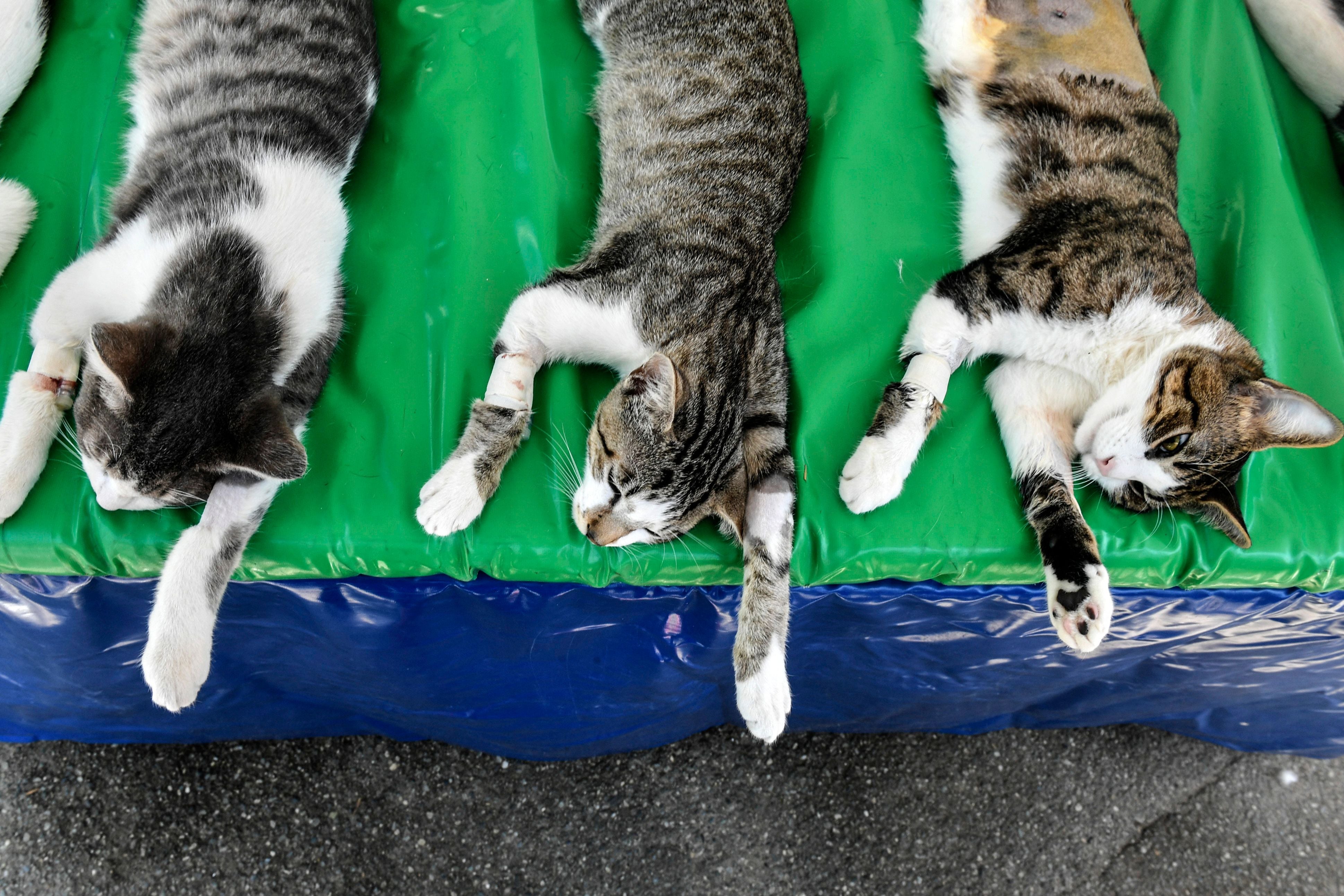The Independent's journalism is supported by our readers. When you purchase through links on our site, we may earn commission.
Cats who live together know each other by name, Japanese study finds
A total of 48 cats which cohabitated with at least two other pets — either with a family in their home or at a cat cafe — were studied

Cats who live with other feline companions can identify and learn each other’s names, a new study in Japan has shown. The discovery by scientists at Kyoto University was made after studying 48 cats that cohabitated with at least two other pets – either in a home or at a cat cafe.
The study did so by decoding the cognitive abilities of the cats; all cats in the study were shown a picture of one of the other cats they lived with and over the course of the study, the responses from the cats were monitored whenever a name of the cat or a completely unrelated name was called.
The felines were tested individually in a familiar room, the study said. According to the scientists, if the cat stared at a photo long enough, it was a definite sign that the cat knew the pictured animal’s real name.
In the case of domestic felines, the cats spent a longer period of time staring at the photo when the name of the cat did not match the pictured animal, which researchers said indicated an “expectancy violation effect”.
One cat, according to the study, “completed only the first trial before escaping from the room and climbing out of reach”.
The study concluded that the number of household members also affected the cats’ responses: “with more family members, cats attended for longer to the monitor in the incongruent condition,” it said.
It also found that cats that had lived with their family for longer showed the most amount of attention when the name–face relationship was incompatible.
The results from the study suggest that cats may be able to learn names from observing human interactions. In the case of domestic cats, the feline matched “at least their companion cats’ names and faces, and possibly their human family members’ names”.
This is the first such evidence showing that domestic cats can connect human utterances and their names through their lived everyday experiences. However, scientists are still unclear on what motives the cats have behind remembering names.
“One possible explanation has to do with competition. For example, a cat might receive food when the owner calls her name but not when she calls another cat’s name,” the study said.
Join our commenting forum
Join thought-provoking conversations, follow other Independent readers and see their replies
Comments
Bookmark popover
Removed from bookmarks